2011 by the Board of Trustees of the University of Illinois
All rights reserved
Manufactured in the United States of America
1 2 3 4 5 C P 5 4 3 2 1

This book is printed on acid-free paper.
Library of Congress Cataloging-in-Publication Data Course, Magnus.
Becoming Mapuche : person and ritual in indigenous Chile / Magnus Course.
p. cm. (Interpretations of culture in the new millennium) Includes bibliographical references and index.
ISBN 978-0-252-03647-7 (cloth)
ISBN 978-0-252-07823-1 (pbk.)
1. Mapuche IndiansEthnic identity.
2. Mapuche IndiansCultural assimilation.
3. Mapuche IndiansGovernment relations.
4. ChileSocial policy. 5. ChileRace relations.
I. Title.
F3126.C74 2011
305.89872dc23 2011039578
For Maya
Preface
The term yewen in the Mapuche language, Mapudungun, can be translated both as respect but also as shame. And it is this feeling of yewen, this mixture of respect and shame, that I feel as I write this preface. Respect, because of the profound admiration I have for the wisdom, generosity, and compassion of the rural Mapuche people with whom I lived. Shame, because any written description cannot but distort and misrepresent to some extent the complexities of rural Mapuche life, even more so when written from a winka, or non-Mapuche, perspective.
Nevertheless, I remain optimistic that this book may constitute a small contribution to debates surrounding Mapuche life, debates all the more important given the current situation of conflict and oppression in which many Mapuche communities now find themselves. I believe that the books contribution lies in the fact that it seeks to present the everyday realities of contemporary rural Mapuche life. It is frequently pointed out that these days the majority of the Mapuche population is resident in urban centers such as Santiago and Temuco, and much attention has rightly shifted toward the problems faced by urban Mapuche. However, a sad effect of this is that for many urban people, rural Mapuche people appear a distant anachronism with little relevance or value to the future. It is assumed that any study of rural Mapuche must be about tradition or custom. It is my fervent belief, however, that it is in the everyday practice of sociality evident in rural Mapuche life that much of what is Mapuche kimun resides. These days one hears a great deal about kimun, a term usually translated as wisdom. Such wisdom is frequently assumed to reside within the words of traditional authorities such as shamans, headmen, and ritual priests. Kimun is this, but it is also much more. Kimun also resides in the daily practices of acting as che, as a true person, of sharing, of greeting, and, most important, of respecting. One could say that kimun is, among other things, a theory of social relations.
The point I wish to make, therefore, is that although this book is not explicitly about politics, it nevertheless presents a Mapuche understanding of social relations which has radical political implications, an understanding of society founded on individual autonomy and responsibility, rather than group belonging and hierarchy. In this sense, I hope to provide an account of Mapuche social philosophy as lived from which to draw ideas and possibilities. In a recent volume a group of Mapuche historians has tried to rethink history from a Mapuche perspective (Mariman, Caniuqueo, Millaln, and Levil 2007). This book is an attempt to rethink social relations from a rural Mapuche perspective, albeit through the distorting lens of winka misunderstanding. I hope those who read it may forgive its many errors and find some inspiration in the Mapuche understanding of what it means to be che, to be a true person, that it seeks to present.
Acknowledgments
Over the twelve years since I started this project I have learned a great deal, only some of which appears in the pages that follow. I am lucky that in the process I have met many people who will be special to me until my final days. My gratitude goes far beyond the words printed here.
The research on which this book is based was supported by the Economic and Social Research Council, the Sutasoma Trust administered by the Royal Anthropological Institute of Great Britain and Ireland, and the British Academy. I would like to thank all of these institutions for their support.
My biggest debt is clearly to the many people throughout the Budi region who helped me in so many ways during my time there. To name them all would be impossible; welu kmekeche kom. The people of Conoco Budi will always have a special place in my heart: Cornelio Painemilla Huarapil, Adelina Pichuual Perquilef, Arturo Painemilla Huarapil, Sigisfredo Painemilla Ancan, Elba Calfupan Huenten, Mariano Painemilla Ancan, the late Mara Neculhual Llaima, Rene Painemilla Ancan and his wife, Pascual Painemilla, Lucia Alonso, Sigifredo Painemilla Painemilla, Christina Huenchucoy, Jaime Painemilla Painemilla, Sergio Painemilla Painemilla, Lorena Toledo, Marcelo Painemilla Painemilla, Noemi Soto Painemilla, Isabella Painemilla Pinchulaf, Pablo Reuca Naguin, Valentin Painemilla Pinchulaf, Teresa Painemilla Huenten, and all of my many malle and uke, pei and lamngen. I am especially grateful to Sergio Painemilla Huarapil and Ana Ancan Cisterna for their kindness and hospitality. Most of what I know about animals, plants, and people I know from Sergiohe is the best teacher and friend one could wish for. My compadres Ral Painemilla Painemilla, Mara Antileo Quimen, and their children, Isaac, Mabel, Milton, Patricio, and my goddaughter Camila Alejandra provided me with a home for most of my fieldwork. Their patience, kindness, and friendship know no limits.
I am equally grateful to my many friends in other parts of Piedra Alta, Trawa-Trawa, and Huapi. I cannot name all of them here but I would particularly like to acknowledge Justo Antileo Nahuelcoy, Rosa Quimen Huillinao, Carlos Paillan Lefio, Fabio Colihuinca, Orlando Huarapil Hueraman, Andres Reuca Collo, Genoveva Neculman, Domingo Alonso Gallardo, the late Domingo Huarapil Nagun, Feliciano ancucheo Painemilla, Roberto Millao Cheuquecoy, Florencio Huenten Traillanca, Alicia Antileo Quimen, Mirta Antileo Quimen, Antonio Malo, the late Felipe Huenten Painequeo, Albertino Antileo, Juana Cayun, Audelio Quimen, and Nicols Paillan.
In Temuco, I would like to thank all the staff of the Instituto de Estudios Indgenas of the Universidad de la Frontera for their kindness and support. I am especially grateful to Alejandro Herrera for his friendship and advice over many years. Further gratitude is owed to Roberto Mansilla of Fundacin de Desarrollo Campesino Mapuche (FUNDECAM) and to Manuel Manquepi. Many of the ideas on which this thesis is based I have discussed at length with Sergio Carihuentro Millaleo, and I am grateful to him and his family for their hospitality and friendship.
Others who have helped along the way include Maurice Bloch, Matthew Engelke, Casey High, Ana Fernndez Garay, Rolf Foerster, Jonathan Hill, Jos Andres Isla, Anne Lavanchy, Andre Menard, Roberto Morales, Suzanne Oakdale, Helmut Schindler, Hector Painequeo, Joel Sherzer, Aldo Vidal, James Woodburn, Mark Jamieson, Jonathan Parry, John Curran, Vanessa Lea, Tnia Stolze Lima, Marcio Goldman, Giovanna Bacchiddu, Frank Salomon, Bill Mayblin, Rebecca Empson, Marcelo Gonzlez, Cristobal Bonelli, and Claudia Robles.

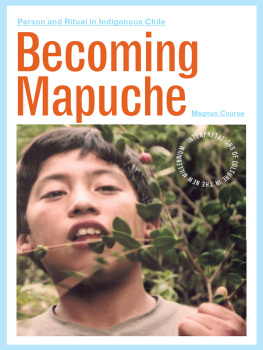
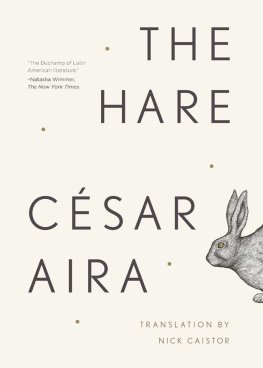

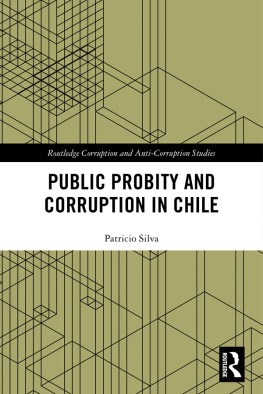
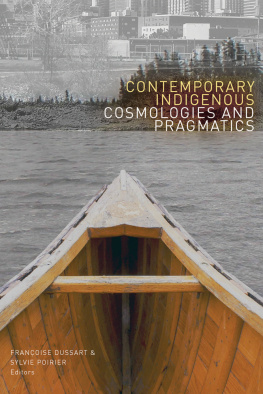

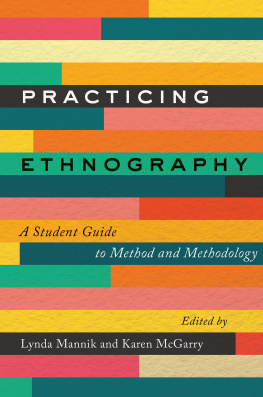
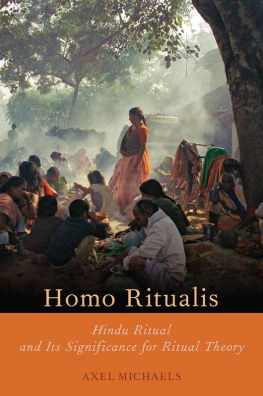

 This book is printed on acid-free paper.
This book is printed on acid-free paper.